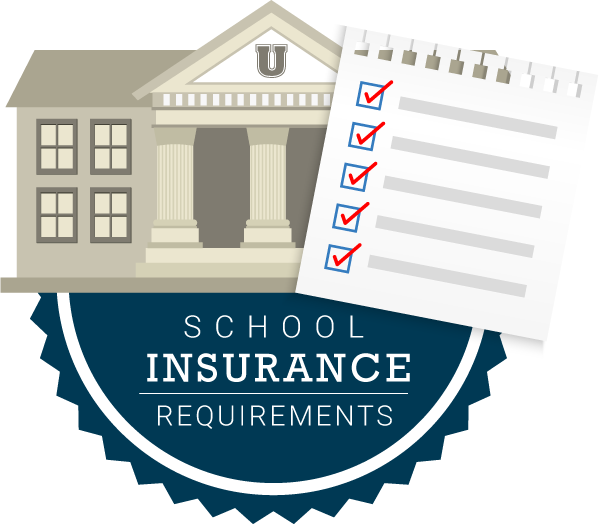Understanding Insurance in the US — Explained For — International Students
Why Do You Need Insurance?
The United States is the most expensive country in the world for healthcare. Americans spent $9,892 per capita on health care in 2016, the highest average in the world. International students should always have a health insurance plan while in the US, and here is why.
Real Examples of Costs in the US:
- Appendicitis: $60,493
- Fractured humerus : $47,445
- Fractured clavicle: $18,393
- Car crash/ serious illness: $150,000+
NO Nationalized Healthcare
+
NO Universal Healthcare
=
You need insurance, or you'll be stuck with the bill!
Learn more about the US Healthcare System +
NO Universal Healthcare
=
You need insurance, or you'll be stuck with the bill!
Health insurance pays for medical expenses related to a covered illness or injury.
Uncover the Myths About Insurance...
I do not need insurance because I won't get sick
FALSE. Accidents and illnesses can happen at any time. There is no way to predict when they will happen and without insurance you are liable for the total cost of your medical bills, which could be thousands of dollars.
FALSE. Insurance is meant to protect against future unforeseen events and many plans will not cover a condition you had before your plan started (we call this a pre-existing condition). Some plans will make you wait a certain number of months before it’s covered, other plans won’t cover that condition at all!
I can just buy insurance when I need it
All health plans are the same, so I just need the cheapest plan
FALSE. No two plans are the same. While you may want the cheapest option, be sure to see if it covers everything you need like sports, maternity, mental health, etc. You may also see a difference in the customer service and claims processing, so it’s very important to evaluate the company and benefits.
Are You Required to Have Insurance?
Health insurance is regulated on a state level, and while certain rules may apply to US citizens, international students are typically responsible for carrying insurance based on the Department of State and their school’s requirements.
Visa Requirements
- J visa — The Department of State requires J visa holders to have health insurance that meets certain criteria, and your school may add additional requirements to this as well.
- F & M visas — There are no federal requirements, but your school may require you to have insurance.

School Insurance Requirements
Check with your school as they may:
- Mandate a plan or require certain benefits
- Enroll you in a group plan
- Allow you to purchase the plan of your choice
5 Things to Consider When Choosing Your Health Insurance
- Find out what your school requires — Ask your school if you can purchase your own plan and what benefits it should include.
- Think about your unique medical needs — Think about what benefits you need on your plan and read the policy wording, especially the plan’s exclusions!
- Check to see where you can get medical treatment — Find out which doctors, clinics and hospitals work with your insurance policy.
- Understand what you need to pay — Know what out-of-pocket expenses you will need to pay when seeking medical treatment.
- Find out how the claims process works — Ask the insurance company how to file a claim, and how long the claim process takes.
Don’t get stuck along the way, learn your insurance terms.
- Deductible — What you pay to the doctor, paid once per year or per condition.
- Copay — What you pay the doctor for each visit, usually instead of a deductible.
- Coinsurance — After your deductible/copay, you will pay a percentage of the bill.
Purchase Your Plan, Prepare Ahead
Purchase your plan, and be sure to begin coverage as soon as you depart your home country. Take a copy of your ID card in case you need medical assistance!
Return to our "Insurance Explained" section for more information and help